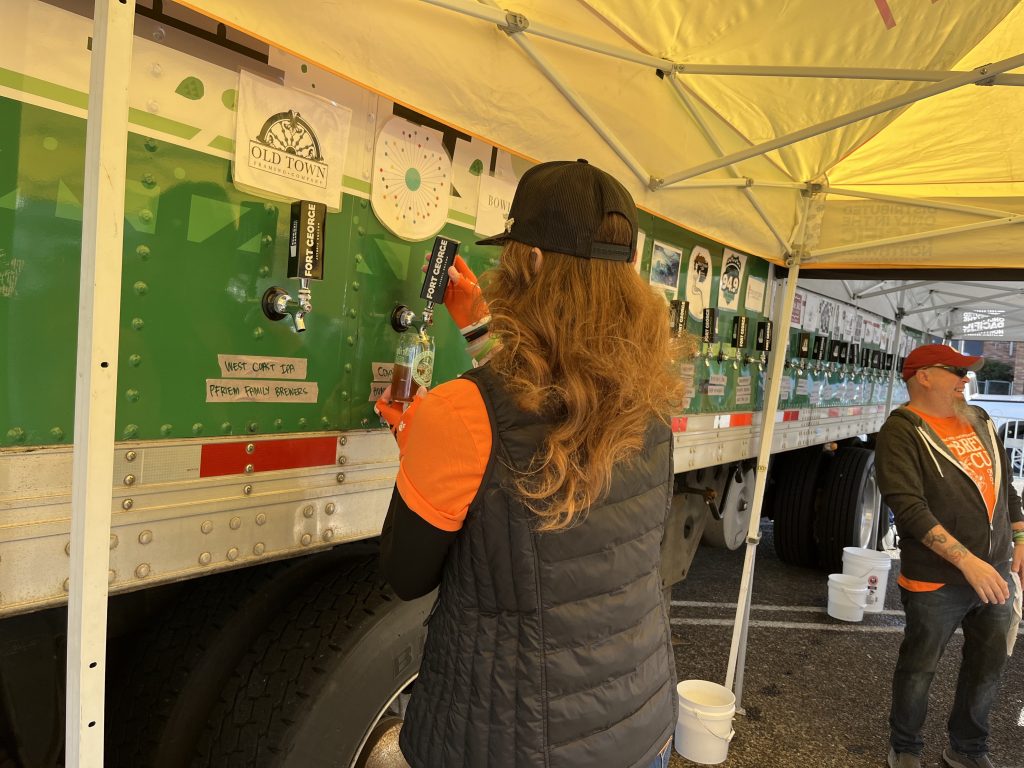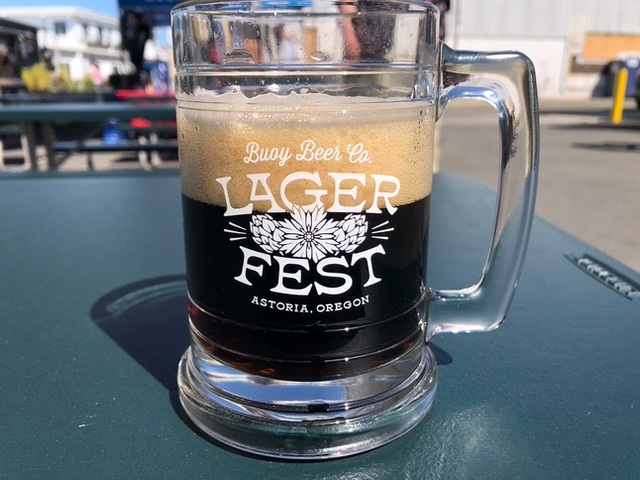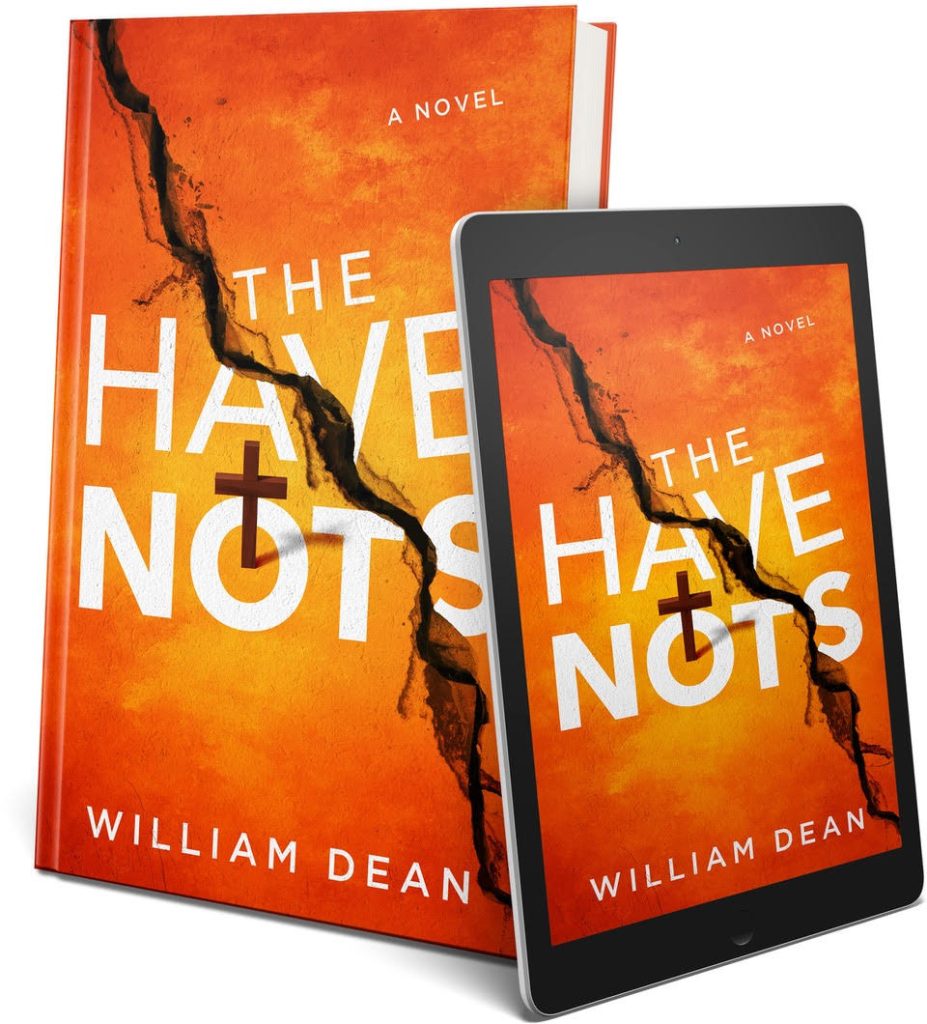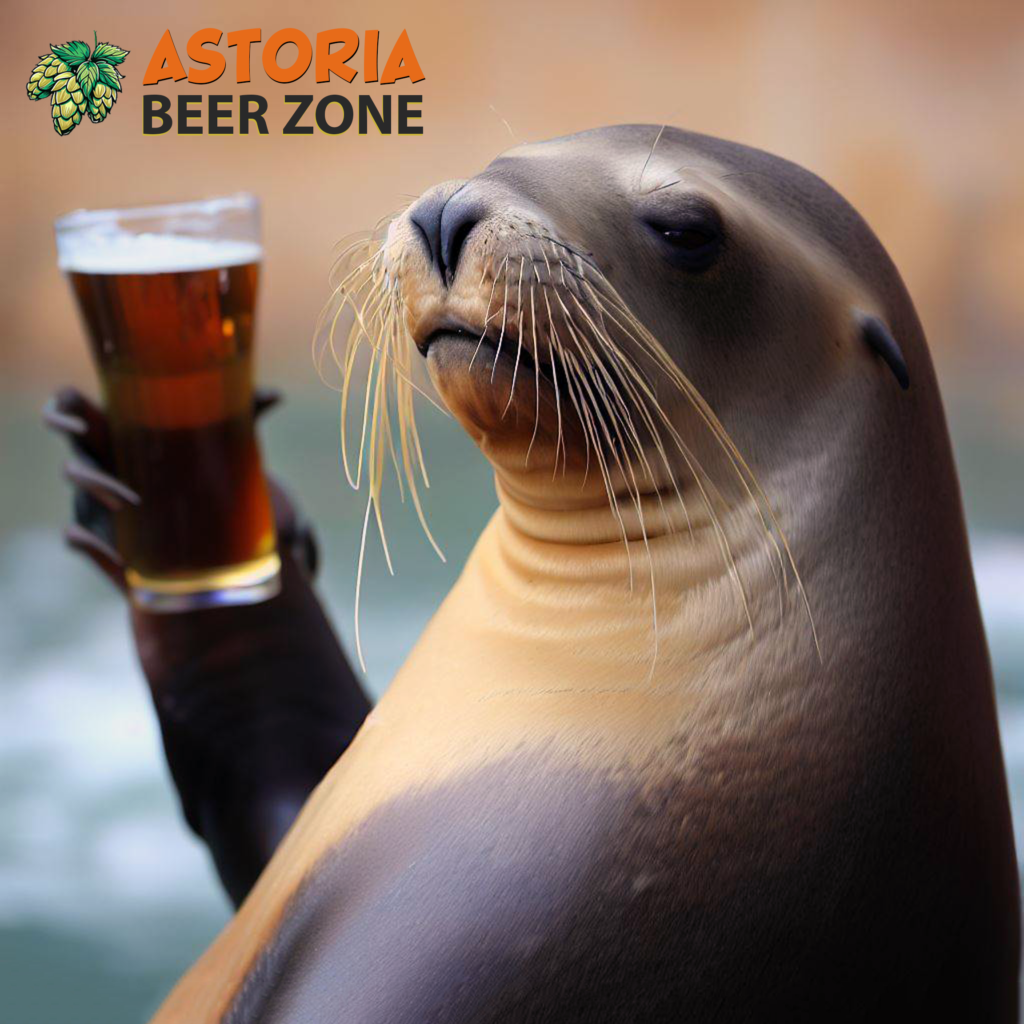Andrew Brown deserves much of the credit for Astoria Brewing’s revival. His arrival as head brewer in March 2022 signaled a major transformation for the city’s oldest craft brewery.
Recipes that had grown stale were updated. New beers appealing to modern tastes were introduced. The inventive side of brewing, long neglected, was also unleashed, with Brown experimenting and collaborating with other North Coast breweries.
Brown, 41, previously worked at Buoy Beer. The Warrenville, Ill., native lives in Astoria with his wife and son.
We recently sat down with him for a wide-ranging conversation:
Q: You moved to Astoria from Illinois in 2015. What brought you here?
A: My wife lived here as a younger child and had some family in the area. That’s how we had come to visit Astoria. … Our son was between elementary school and middle school, so it was a good time to kind of transition. Just try something new.
We didn’t really come here for the family part of it – just the town itself. Obviously, it’s a beautiful place and a great community.
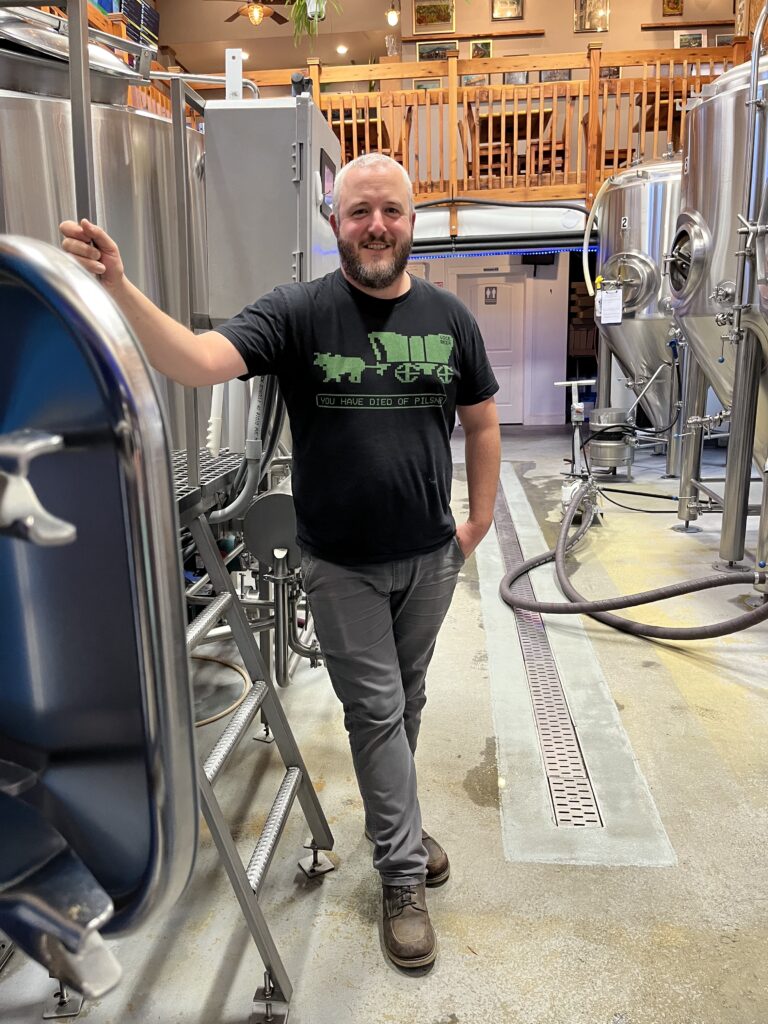
Q: How did you come to be a brewer?
A: My journey as a brewer started around 2008. I came out to visit a friend in Seattle and had my first IPA, and I was pretty much hooked. To know that a beer can be more than a macro light lager was sort of eye-opening. … I had a friend in Chicago who was a home brewer, and I just jumped into that full speed. It sort of consumed my life, as a hobby at least.
I never really had an intention of doing it professionally. The stars sort of aligned for that to happen, I guess. It wasn’t something I was seeking out. We had moved to Astoria and I was working from home [doing accounting]. Got a call one day and my boss said he was shutting the business down and giving us three months’ severance. My wife was working for Buoy, serving there … so I got introduced to Kevin [Shaw, head brewer].
One thing led to another. They were hiring for a packaging position, and I was able to convince my wife that a paycheck was better than no paycheck. So, I took that job with the 100 percent intention of being in the brewhouse as soon as possible. … I busted my ass for about six months and then a spot opened up.
Q: At Buoy, you learned a lot on the job?
A: Yeah, it was a great spot to get your feet wet. I got to learn from some really nice people. Very easy to work with; very willing to teach. And that’s not always easy to find.
I just was willing to do anything and learn anything, and asked as many questions as I could. … I think I brewed 15 or more pilot beers at Buoy and got to do a couple of my own recipes on the 20-barrel system, so that was pretty fun. A great opportunity.
Q: You left in 2021 because working mainly as a production brewer wasn’t your thing. And then later, the head brewer job at Astoria Brewing came along.
A: I didn’t think at first that it was a serious option. I just felt it was worth a conversation. And, obviously, here I am. [Smiles].
What attracted me to the job – at least the way Brad [Kenoyer, general manager] pitched it to me – was sort of this new era of Astoria Brewing. They wanted to move on past some of the older branding, revamp some of the beers, and from there I’d have complete creative control. That sounded right up my alley.
Q: At the time, Astoria Brewing seemed stagnant.
A: Good word. … I definitely took it as a challenge. And that was part of what attracted me to the job as well: being the person to facilitate those changes that needed to be made. And also kind of being the face of Astoria Brewing and putting yourself out there – these are your beers now.
When I came here there was almost no record-keeping. Even if I wanted to brew Bitter Bitch [double IPA, now retired] again, I didn’t even have a recipe to do it. It was kind of head-scratching coming in here. Like, how did this place survive?
Q: What have been the biggest rewards of the job so far?
A: Hearing people say, ‘Wow, what a difference.’ Or, ‘In such a short time, things have changed so much.’ Or, hearing from Fort George that all the [Astoria Brewing] beers are well-received in the market. That’s probably the most rewarding thing for me.
Q: What’s the capacity of your brewhouse? Is there room to grow?
A: It’s a 15-barrel brewhouse. … At full capacity, we can probably squeeze 1,200 barrels out of this place. We’re probably going to brew 700 barrels this year, up about a hundred from last year.
There’s no plan for Astoria Brewing to be the next Buoy or Fort George. I know for a fact that’s not anything [the owners] are interested in.
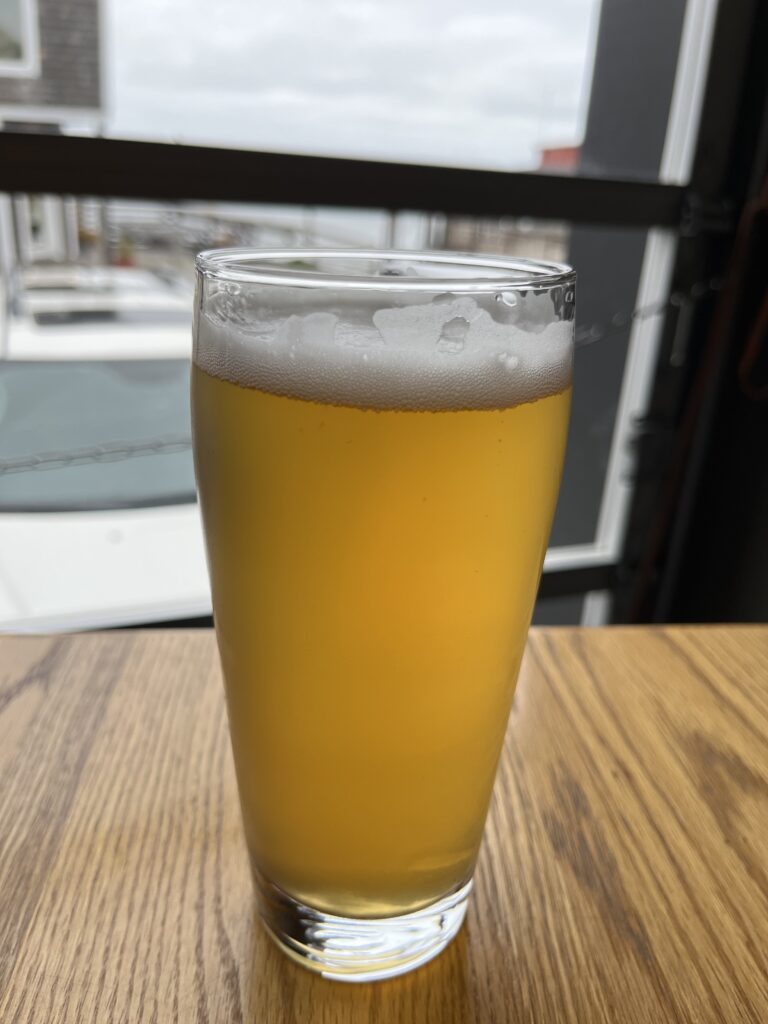
Q: What have been your biggest accomplishments so far?
A: [Long pause]. The rate at which we’ve been able to turn things around, especially with the five core beers. Like I said, we didn’t really have recipes to draw from. We tried to keep them true to style, but at the same time modernize, improving the beer in the process. I think consistency was a huge problem previously, from talking to Brad and stuff.
Also, I just kind of threw together a pilsner recipe and stuck with that one because it worked. It came out of the gates pretty hot, which was nice.
Q: You’re more open to collaborations and special releases, but that’s hard to do at a small brewery with limited tank space. Why make the effort?
A: Just to get your beer out in front of people who may not otherwise be exposed to it. That’s the main reason for me.
Obviously, if it wasn’t something we were proud of, we wouldn’t put it out there. The first collaboration we did with Obelisk we decided it didn’t meet the standard that either Dave [Coyne, head brewer] or I wanted, and we ended up dumping it. It turned out a lot better the second time. [Laughs] The thing about collaborations is learning and exchanging ideas and techniques. … You know, push the envelope a little bit and get out of your comfort zone.
Q: Looking ahead, what short-term goals do you have?
A: I want to do some more canning. Can other beers, like some of the seasonals and one-offs that we do. Even if it’s limited to 30 or 40 cases, something like that.
I’d love to win something from OBA. I think the Oregon Beer Awards – if you’re winning awards amongst all the great breweries in Oregon, it’s prestigious.
I’d also like to get more beer [aging] in wood.
Q: There have been some recent consolidations and closures in the craft beer industry. Are you worried about the trend?
A: I’m not super-worried about it for a brewery our size. Probably 60 to 70 percent of our production gets sold at the brewpub. So, for us, that’s probably not going to change, barring some massive economic downtown.
I read somewhere that the smaller you are, the better position you’re in. I think that’s true.

